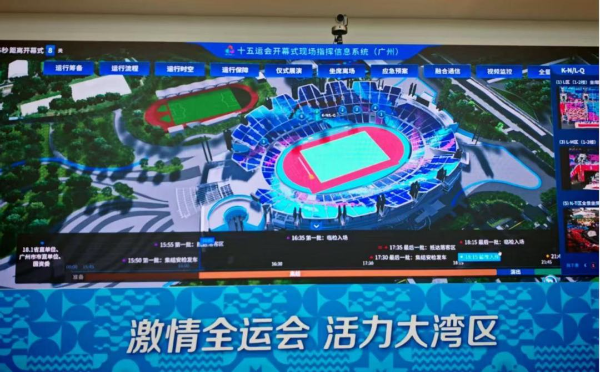When the 15th National Games of China opened in Guangzhou on November 9, the backstage command center looked nothing like traditional control rooms. Instead of wall-to-wall monitors, the Guangzhou MOC (Main Operation Center) system integrated artificial intelligence, digital twins, and 12,000 live video feeds into a single interface, all manageable from one screen.

The system processed over 100 million data points from 216 categories, including transport, weather, and public health, enabling organizers to monitor everything from venue occupancy to real-time passenger flow at assembly points. Its "trio-sync" design—linking data, maps, and surveillance videos—allowed commanders to click on any area of a 3D map and instantly access live footage, crowd density metrics, or task progress.
During a pre-opening drill, the system flagged a simulated crowd buildup at a venue entrance. Within two minutes, staff located the site on the digital map, activated nearby cameras, and dispatched security and volunteers, all via video call. Such speed was possible because the MOC integrated over 10 departmental systems, eliminating the need to switch between platforms.

The platform's "temporal slider" lets commanders scroll through a timeline of scheduled events, tracking live progress or anticipating bottlenecks. If tasks fell behind schedule, the system could initiate a video conference with relevant team leaders on-site.
Rather than building from scratch, developers reused existing city digital infrastructure, notably Guangzhou's urban smart management command center. This approach reduced costs and ensured that 85% of the software and hardware would be repurposed for urban management after the Games.
The MOC is one of more than 10 intelligent modules under "Sui Zhi Guan," which already supports traffic management, environmental monitoring, and public services. Its algorithms and data models will be reused for future major events like the Guangzhou Marathon and trade fairs.
Author | Feng Huiting
Photo | Guangzhou Daily
Editor | Ouyang Yan, Liu Lingzhi, James Campion, Shen He
















